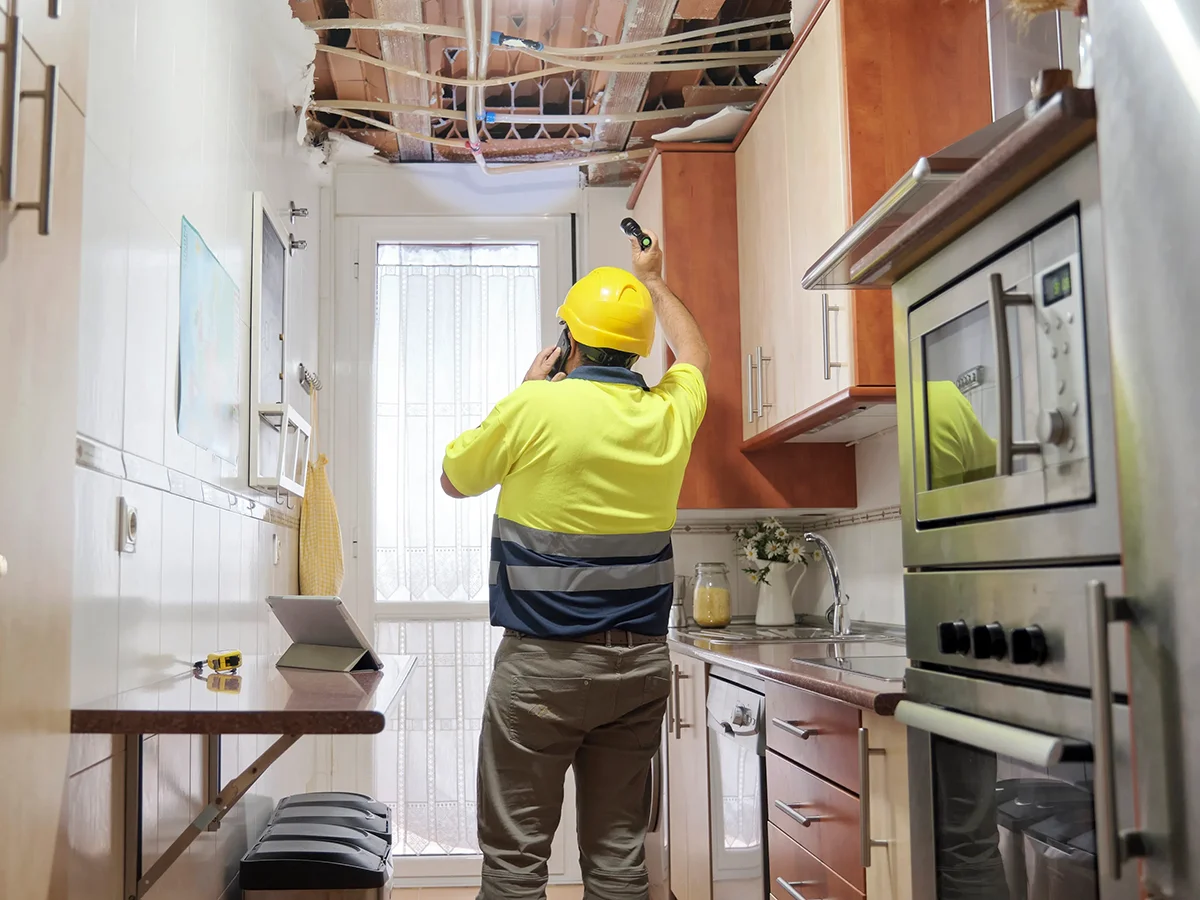How to Avoid Falling into the Trap of an Unreliable Kitchen and Bathroom Contractor in Northern VA
The top 7 signs of a bad kitchen and bathroom contractor in Northern Virginia include missing licensing documentation, unrealistic pricing demands, poor communication, inadequate insurance coverage, vague contracts, no verifiable references, and project management failures. With contractors ranking second highest for consumer complaints nationwide and average kitchen projects costing $30,000 to $50,000, you must protect yourself from unqualified professionals.
Northern Virginia's competitive market attracts both excellent contractors and opportunistic operators seeking to exploit unsuspecting homeowners. Recognizing these warning signs protects your investment and ensures renovation success.
1. Poor or Missing Licensing Documentation in Northern Virginia
Licensing violations represent the most serious red flag when hiring contractors. Virginia requires all contractors working on projects valued over $1,000 to hold proper state licenses through the Department of Professional and Occupational Regulation.
Licensed contractors display their credentials openly and provide license numbers for verification. Bad contractors often:
- Refuse to show licensing documentation
- Claim exemptions that don't exist
- Work under expired or invalid licenses
- Use other contractors' license numbers illegally
Northern Virginia requires Class A licenses for projects over $120,000, Class B for projects $10,000 to $120,000, and Class C for smaller projects up to $150,000 annually. Unlicensed contractors face criminal misdemeanor charges and fines up to $500 per day.
Verify any contractor's license through the Virginia DPOR website. Professional contractors maintain current licensing and encourage verification.
2. Unrealistic Pricing and Payment Demands
Suspicious pricing patterns often indicate contractor problems. Extremely low bids frequently signal inexperience, desperation, or plans to increase costs later through change orders.
Bad contractors typically demand excessive upfront payments, sometimes requesting 50% or more before starting work. Professional contractors request 10-30% deposits with remaining payments tied to project milestones.
Warning signs include:
- Quotes significantly below market rates
- Demands for full payment upfront
- Cash-only payment requirements
- Vague cost breakdowns without material specifications
Budget manipulation becomes common once demolition begins. Unscrupulous contractors exploit homeowners' vulnerable position by claiming unexpected costs require additional payments. Understanding renovating on a budget helps identify realistic pricing.
3. Poor Communication and Unprofessional Behavior
Communication failures create most contractor-homeowner disputes. Bad contractors demonstrate poor communication through missed appointments, delayed responses, and unclear project explanations.
Professional contractors maintain regular contact throughout projects, providing updates on progress, schedule changes, and any issues requiring attention. They respond to calls and emails within 24 hours.
Red flags include:
- Consistently missing scheduled meetings
- Taking days to return calls or messages
- Avoiding direct questions about licensing or insurance
- High-pressure sales tactics demanding immediate decisions
Quality bathroom remodeling and kitchen remodeling require consistent professional communication throughout the entire project.
4. Inadequate Insurance and Bonding Coverage
Insurance deficiencies expose homeowners to significant financial liability. Bad contractors often operate without proper liability insurance or workers' compensation coverage, making homeowners responsible for accidents or property damage.
Virginia requires Class A and B contractors to maintain financial security through bonding or equivalent measures. Class A contractors must show $45,000 net worth, while Class B contractors need $15,000 financial backing.
Professional contractors provide current insurance certificates showing:
- General liability coverage protecting property
- Workers' compensation for employee injuries
- Professional liability for design errors
- Current policy dates and adequate coverage amounts
5. Vague Contracts and Missing Documentation
Contract problems indicate unprofessional business practices. Bad contractors often provide vague agreements that lack specific details about materials, timelines, or completion standards.
Trusted contracts specify exact material brands, installation methods, project timelines, and procedures for change orders. They include warranty information and cleanup responsibilities.
Warning signs include:
- Reluctance to provide written contracts
- Missing permit and inspection schedules
- Vague material descriptions
- No warranty or guarantee terms
Reliable contractors understand the remodeling process and document every aspect thoroughly.
6. No Verifiable References or Poor Online Reviews
Reference problems reveal contractor reliability issues. Bad contractors often fail to provide recent customer references or avoid discussing previous projects in detail.
Professional contractors maintain strong relationships with satisfied customers throughout Northern Virginia communities. They provide contact information for recent projects and encourage reference calls.
Red flags include:
- Refusing to provide customer references
- Only offering references from years ago
- Negative patterns in online reviews
- No local business presence or physical address
Research contractors through Better Business Bureau reports, online review platforms, and local Springfield area community feedback.
7. Project Management and Quality Control Issues
Management failures indicate broader contractor problems. Bad contractors demonstrate poor organization through missed deadlines, uncoordinated subcontractors, and inadequate job site supervision.
We coordinate material deliveries, subcontractor schedules, and inspection appointments efficiently. Trust us to maintain clean work sites and protect existing home areas from construction damage.
Warning signs include:
- Missing project deadlines consistently
- Poor job site organization
- Subcontractors arriving unannounced
- Incomplete or shoddy workmanship
Professional contractors understand that creating luxurious bathroom spaces requires attention to detail throughout every project phase.
How to Protect Yourself from Bad Contractors
Research contractors thoroughly before hiring. Verify licensing, check references, and review insurance documentation. Compare multiple bids and avoid unusually low estimates.
Understanding these warning signs helps identify good contractors who demonstrate professionalism and commitment to quality results.
Ready to work with qualified professionals? Call us at (703) 388.9088 for expert kitchen and bathroom remodeling solutions throughout Northern Virginia.
